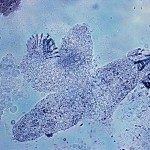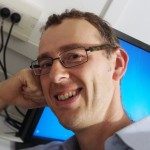About
SÉMINAIRE DU DÉPARTEMENT DES PARASITES ET INSECTES VECTEURS
Mark CARRINGTON
Department of Biochemistry, University of Cambridge
“How do trypanosome receptors for host macromolecules bind ligands
and yet avoid the host immune response?”
jeudi 8 décembre 2022, 12h00
Salle Rétrovirus – RDC Bâtiment Lwoff
Contact : philippe.bastin@pasteur.fr
Trypanosoma brucei proliferates in the bloodstream and tissue spaces of mammalian hosts. This simple observation means that the trypanosomes have to acquire nutrients from the host and at the same time avoid both the adaptive and the various arms of the innate immune system.
The mechanism used to avoid the adaptive immune response has been well characterised and is based on antigenic variation of the variant surface glycoprotein (VSG) coat that covers the entire trypanosome surface. The host raises an antibody response to the VSG and when the titre is high enough the trypanosome is killed, however trypanosomes that have switched the identity of the expressed VSG escape. Iterations result in population survival.
The VSG coat causes the trypanosome two problems. First, the uptake of host macromolecular nutrients, such as transferrin, has to occur without the receptor attracting an antibody response. Second, trypanosomes have to avoid the innate immune system and in particular the non-specific deposition of complement C3 on the cell surface.
We have some understanding of how these problems have been resolved from using a combination of molecular, cell, and evolutionary biology. The structure and evolution of various receptors has suggested that avoidance/minimisation of an adaptive immune response against the receptor has a selective advantage. The cellular distribution and accessibility of some receptors indicates the VSG coat does not provide complete protection. Analysis of the behaviour of ligand bound receptors indicates that there is rapid clearance from the cell surface.
In conclusion, receptors have evolved to work in the context of a VSG coat and to minimise antibody accessibility using a range of adaptations. However, some receptors are accessible to antibodies and can be exploited in the development of antibody drug conjugates.

